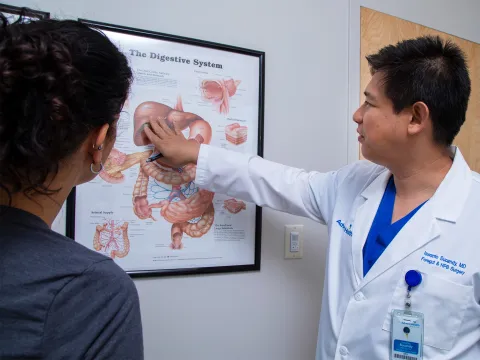- AdventHealth

Magnetic resonance imaging (MRI) tests use strong magnetic fields and radio waves to create images of organs, bones and other structures in the body.
Physicians use MRIs to accurately diagnose brain, joint, spinal cord, and other disorders. Unlike X-rays and computed tomography (CT) scans, MRIs do not use radiation to create images.
Here are some things to expect if your physician recommends a MRI along your health journey.
Before an MRI
If you have claustrophobia (fear of enclosed spaces), talk with your doctor ahead of time— he or she may discuss other options, like an open MRI, or give you a prescription for a mild sedative you can take prior to the test to calm your anxiety.
Before entering the MRI suite, you will be asked to remove anything metal from your body. Some examples include barrettes, hearing aids, jewelry, eyeglasses, and body piercings.
During an MRI
You can expect the following while you are having an MRI:
- Upon entering the MRI room, you’ll be asked to lie down on a slender, padded table that glides in and out of the MRI scanner— a large tunnel or doughnut-shaped machine that is open on both ends.
- You’ll be given earplugs or earmuffs to protect your ears from the loud pounding noise the scanner makes.
- If you need a contrast agent, a nurse will start an intravenous (IV) line into your hand or arm. These compounds improve the quality and details of the images. Most people have only mild, if any, reactions to these drugs.
- During the scan the operator will not be in the room with you, but will be able to see and speak with you.
- Most exams take 15 minutes to an hour to perform. To get clear images, you need to remain as still as you can.
After an MRI
Most MRI tests are completed at an imaging center on an outpatient basis. Once your exam is complete, you’ll be able to return home and the imaging center will report your results to your physician, who will call you with the results.
If you have any questions about an upcoming MRI, our imaging experts are available to help guide you. Visit our website for more information.



